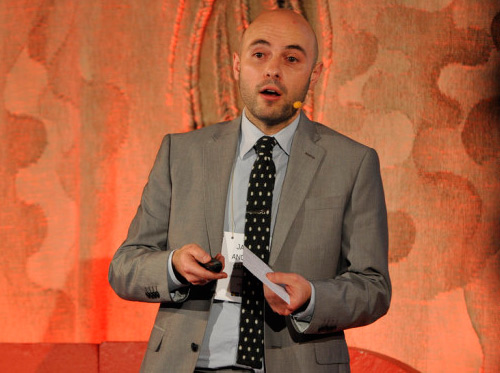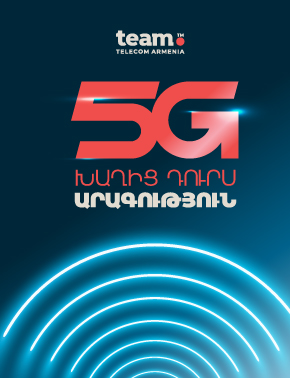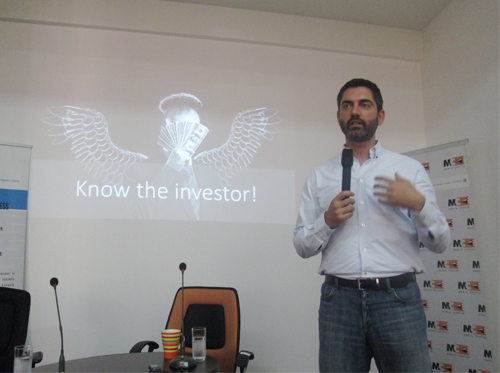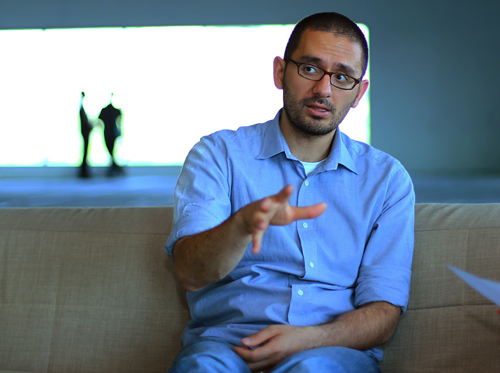-

Andreas Sandre
08:45 | 16.05.15 | Interviews | exclusive 182104
Facebook and Twitter: Unwritten rules of Digital Diplomacy
On May 11-12, "Digital Diplomacy: Prospects and Challenges" International Conference organized by Diplomatic School of MFA held in Yerevan. More than 70 diplomats and scholars from around 25 states participate in that event.
In the margins of the Conference Itel.am talked to Andreas Sandre, press officer at the Italian embassy in Washington DC and author of “Twitter for Diplomats” and “Digital Diplomacy”. We present the most interesting excerpts from this interview.
I look at Digital Diplomacy in a few different ways. Obviously, the most visible part of Digital Diplomacy is social media – Facebook and Twitter, also LinkedIn. We also need a little experimentation to see what the best use of it could be. For instance, there are several embassies, especially in the United States that are looking into BuzzFeed and Snapchat as a way of expanding outside of Twitter and Facebook.
************
Digital Diplomacy is not just about social media, it’s also about innovation and investing in ideas, because ideas are the key to move forward. Thanks to technology the younger generation of diplomats can bring the ideas into diplomatic practice. I think older diplomats should lend an ear to new generations because they know Facebook or Twitter much better than them. It’s also about the system’s disruption. In general, disruption is not a good thing but if you look at it in terms of innovation, it’s positive. It is also about learning from failures.
************
As in traditional diplomacy in social media you can also say something which goes wrong. We should simply think twice before publishing something there. For example, a good friend of mine posted without description a picture of him having dinner at an Embassy during the very hard time in Cairo. An Italian blogger noticed it and disseminated with the idea that instead of performing their professional duties, instead of trying to help the Italian community get in touch with their relatives and instead of informing efficiently about the chaos in Cairo, the diplomat is having fun at the Embassy. But it was not about having fun, it was just about being real and trying to stay as positive as possible in a chaotic environment. So you should be cautious.
************
You should be keen on statistics. It is important because you see how far your message is going. You can also learn from people who are messaging and following you. It refers not only to the area of international relations but also to different aspects. Instead of building a network around you as a diplomat, a minister or an ambassador, you should also use these tools for the first-know level.
************
It is also important to post in social media personally. Being as personal as possible is important, because people are interested to see what an ambassador does in his life outside the office. So the human side is very important and you should show it just like celebrities do. Otherwise, you will not be very successful; you will just broadcast the messages, instead of real engagement.
************
During his speech at a conference, the EU Ambassador to Armenia joked saying the EU actively uses social media despite the fact EU’s profiles are not so popular as Kim Kardashian’s. Sometimes Digital Diplomacy is about luck. For example, having Kim Kardashian in Armenia generated a lot of attention around the Genocide issue and Centennial. This attention would never be so much without Kim Kardashian's visit to Armenia.
Armenia and other small and even big states would never be able to create that much attention without that luck. Some people call it “little magic.” The fact Kim Kardashian was there 10 days before the Centennial makes that magic, because if you look at the numbers behind her presence here, you might notice the real leap. Celebrities like Kim Kardashian are very useful and Armenia is very lucky to have one of the biggest celebrities around the world.
Aram Araratyan

17:29 | 24.09.25 | Articles
Jacopo Losso on Cross-Border Investments and Why Armenia Attracts Angels








